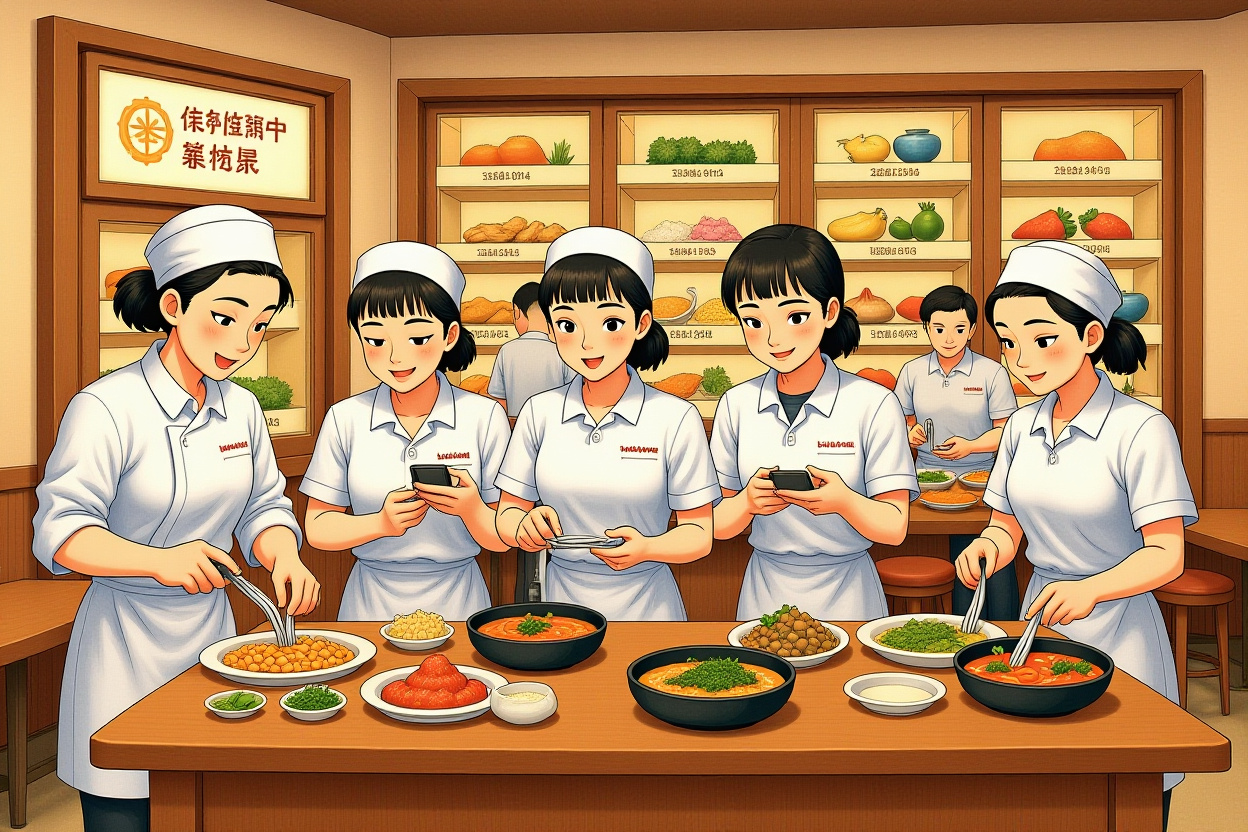Market Impact of Recent Controversy
The ongoing debate surrounding XiBei Youmian Village’s (西贝莜面村) use of pre-processed ingredients has triggered significant operational challenges for the popular restaurant chain. According to exclusive insights from a store chef with over a decade of experience, weekend revenues have plummeted by approximately 50%, representing daily losses of 20,000-30,000 yuan. This downturn reflects broader consumer skepticism toward food preparation methods in China’s restaurant sector.
Immediate Revenue Consequences
The Tongzhou district location, typically bustling with weekend patrons, now shows conspicuous empty seating areas during peak hours. Both dine-in and delivery orders have experienced similar decline patterns, indicating widespread customer hesitation. Despite this sharp downturn, management maintains confidence in their ingredient quality and operational transparency.
Inventory Management Response
The restaurant has implemented strict inventory protocols to address reduced demand. Prepared foods must be consumed within 72 hours, while fresh ingredients have a 24-hour window before being repurposed for staff meals. This approach minimizes waste while maintaining quality standards.
Understanding Pre-Processed Ingredients
XiBei’s operational model centers around what they term ‘pre-processed ingredients’ rather than pre-made dishes. This distinction has become the core of the current controversy, with consumers and industry observers debating where to draw the line between convenience and quality.
Storage and Preservation Standards
The restaurant’s freezer inventory reveals various pre-processed components with varying shelf lives: frozen pork strips (18 months), beef slices (12 months), and quick-frozen green beans (18 months). Children’s menu items include organic broccoli (24 months) and tomato sauce (9 months). All products carry appropriate certification and traceability codes.
Preparation Process Transparency
During kitchen observations, staff demonstrated how frozen tomato sauce undergoes 16-18 hours of refrigeration thawing, precise water ratio mixing, and final heating before service. This process exemplifies what the company calls ‘procedure front-loading’ rather than pre-made meal service.
Industry Context and Consumer Perception
China’s restaurant industry faces dual pressures of rising operational costs and evolving consumer expectations. The pre-processed ingredients debate reflects broader concerns about food quality and transparency in the sector.
Customer Sentiment Division
Patron reactions show significant variation. Regular customers, particularly families with young children, continue supporting the chain despite recent controversies. First-time visitors express more critical views regarding taste and value proposition. This divergence highlights the challenge of maintaining brand loyalty during crisis periods.
Regulatory Compliance Framework
All pre-processed ingredients meet national food safety standards, with many exceeding minimum requirements. The company emphasizes its rigorous internal quality controls and employee consumption of the same ingredients served to customers.
Leadership Response and Internal Morale
Founder Jia Guolong (贾国龙) reportedly convened an 18,000-employee virtual meeting via Feishu to address growing concerns. The session primarily featured staff feedback rather than executive commentary, suggesting a bottom-up approach to crisis management.
Employee Perspective
Long-term staff express both loyalty and frustration regarding recent allegations. Many emphasize their personal use of company ingredients for family meals, viewing this as ultimate quality validation. However, increased media scrutiny has made frontline employees more cautious in customer interactions.
Industry Expert Commentary
Marketing specialists familiar with Jia Guolong note the unusual communication silence from typically accessible leadership. One observer questioned whether current challenges represent deserved consequences or industry-wide issues manifesting through a single brand.
Operational Realities and Future Outlook
The controversy highlights tension between operational efficiency and consumer expectations in modern restaurant management. XiBei’s approach to pre-processed ingredients represents common industry practice rather than exceptional behavior.
Supply Chain Considerations
Frozen vegetables and meats enable consistent quality and availability across locations while reducing spoilage losses. The practice aligns with agricultural distribution patterns where produce undergoes freezing shortly after harvest for transportation to urban centers.
Market Position Challenges
XiBei’s premium positioning makes transparency expectations particularly stringent. Customers paying higher prices expect corresponding quality and freshness, creating inherent tension with efficient kitchen operations.
Path Forward for China’s Restaurant Sector
The industry faces critical decisions regarding operational transparency and consumer education. Recent events demonstrate that even standard practices require clear communication to maintain customer trust.
Successful operators will likely invest more in kitchen transparency and ingredient education. As consumers become more sophisticated about food preparation methods, restaurants must balance efficiency with observable quality indicators. The companies that thrive will be those that transform operational necessities into customer confidence builders rather than hidden compromises.
For investors monitoring China’s consumer sector, this episode underscores the growing importance of operational transparency in brand valuation. Restaurants embracing open kitchen concepts and supply chain visibility may command premium market positions despite higher operational costs.




